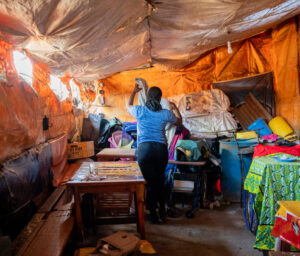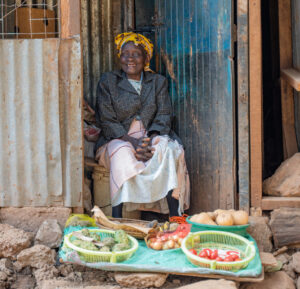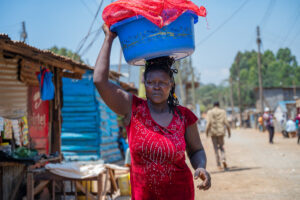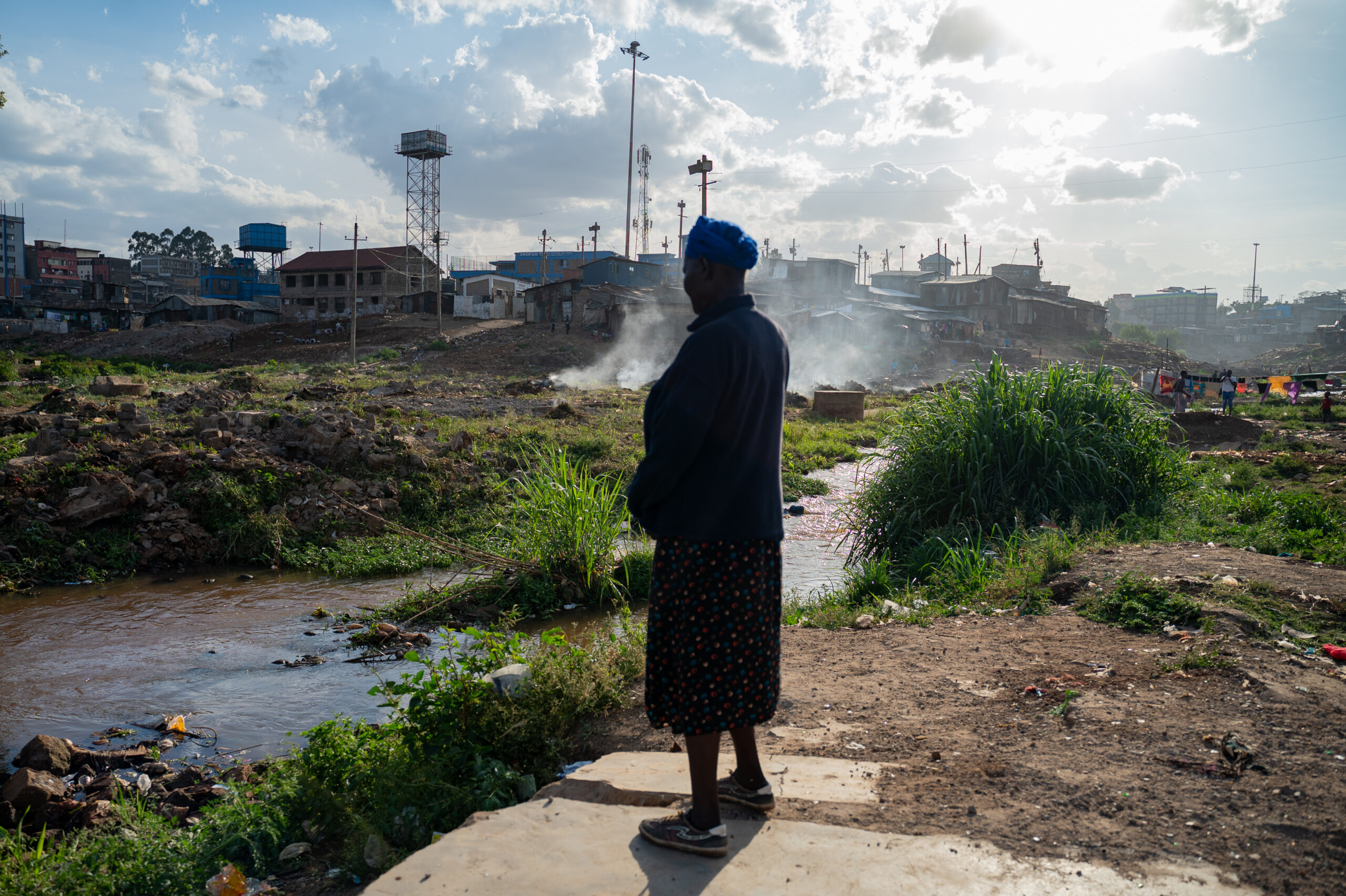Disclaimer: This article and films contain references to sexual and gender-based violence, as well as suicide, which some readers may find distressing.
“When the floods came, I ran outside with my children”, said Emelda Hamisi*, who lives in Mathare, an informal settlement in Nairobi. “Floods swept away everything. Since I lost my husband, I don’t have anyone to help me”.
Between March and May 2024, heavy rainfall caused widespread flooding across Kenya, impacting more than 500,000 people across the country, with those living in Nairobi’s informal settlements hit hard.
After losing her home, Emelda faced yet more suffering when she was sexually attacked.
“During the night, while you are sleeping, you never know who might attack you. I contracted HIV from my assailant. I asked the doctor, ‘what will I do?’ Emelda, who now takes anti-viral drugs daily, added: “I was so scared, I almost died. I never had HIV and now I have to live with it.”
In June 2024, the Scottish Government activated the Humanitarian Emergency Fund, and allocated £250,000 to respond to the floods. Oxfam received £125,000 to support a partner-led response in Nairobi’s informal settlements.
Between June and October, Oxfam worked in partnership with five partners: Wangu Kanja Foundation, Mukuru Youth Initiative, Good Samaritan Children’s Home, Family is Family and Koch Hope. More than 80% of the funding Oxfam received from the Scottish Government was allocated to these local partners, reflecting our commitment to local humanitarian leadership.
With increased risk of sexual and gender-based violence, a key element of the project was strengthening community protection mechanisms, raising awareness of referral pathways and providing medical, psychosocial, and legal support. Some 150 survivors of sexual and gender-based violence, including Emelda, received counselling and 60 individuals received medical support.
Maryann Wanjiru, from WKF, said: “The counselling services were able to help these individuals to come to terms with what has happened, but also to be able to forge a clear way forward to restore themselves, restore their dignity, restore their business. The medical services also came in handy, with the surge of cases of sexual and gender-based violence, but also looking at some of the physical injuries that people sustained while trying to rescue others and household items.”
Mirabel Otieno* was also displaced by the floods and the mother of three’s husband is missing.

She said: “We were sleeping and we heard people screaming. We went outside to check what was happening and we saw our neighbour’s house being carried by the floods. I ran back to the house to rescue my kids because they were sleeping. I lost everything and I was left alone to fend for my kids.
“I went to someone’s house and he allowed us to stay for only one night. During the night, he tried to take advantage of me and I refused and I told him I just gave birth through C-Section. But he didn’t listen to me, he went ahead and took advantage of me.
“I was going through a lot and I tried committing suicide. I started going for counselling for one hour, once per week. I don’t know where I would be if it wasn’t for the therapy. I want to improve my life and get a home of my own where my kids will be proud to bring their friends.”
Alongside support for survivors of gender-based violence, the project supported 1,445 households – 6,093 individuals – with cash, helping people to access food. These households, nearly two-thirds of which were female-headed and 42% of which included people with disabilities, also received water tokens for prepaid water dispensers, leading to a major surge in the proportion who were able to access at least 7.5 litres of safe water daily.
With health risks from overcrowding and poor sanitation in temporary shelters and camps increasing waterborne disease and other infections, the project also delivered hygiene awareness activities.
While significant challenges remain, by integrating cash grants with water, hygiene, and protection services, the project’s response has laid a foundation for community resilience and recovery.

“That night when the floods came into my house, I was woken up by the sound of utensils in the rushing water,” said 69-year-old, Weremasia Osebe, a mother of three and grandmother to four, who relies on crutches due to having her leg amputated from the knee downwards.
“It was midnight. My grandchildren had visited that day and were fast asleep. I woke them up quickly and we huddled together on my bed until morning. Plates and cooking pots were swept away by the water, and we remained with the bed, suitcases, and our lives. We were afraid because we knew people had died like this.”
Weremasia used the cash payment she received to buy food and restock her vegetable business.
Joyce Nyarangi Oyugi, 36, a single mother of four, lost everything – including her children’s mattresses, school uniforms, and books – and her house was later demolished.
“Before the floods, my life was good, I used to sell goods at a kiosk. I would sell the goods and use the money to feed my children and use the rest to pay school fees. Me and my children were left without anything.

“It was a very difficult time for me. I had lost all hope, I did not know where to relocate to. I wondered who would take me in without rent money. All the stress affected me to the point that I got sick.
Joyce was supported by Oxfam’s partner, Family is Family, who offered her Non-Food Items, such as a bucket, water purification tablets, and re-usable sanitary pads, as well as a cash grant that she used to buy food.
“I cried in gratitude,” said Joyce. “I bought food, tools for my cleaning work and took my children back to school”.
Oxfam is hugely grateful for the Scottish Government’s funding support for this project.
![]()
Please, if you can, donate to Oxfam’s Emergency Response work globally.
*The names of Emelda and Mirabel have been changed.
